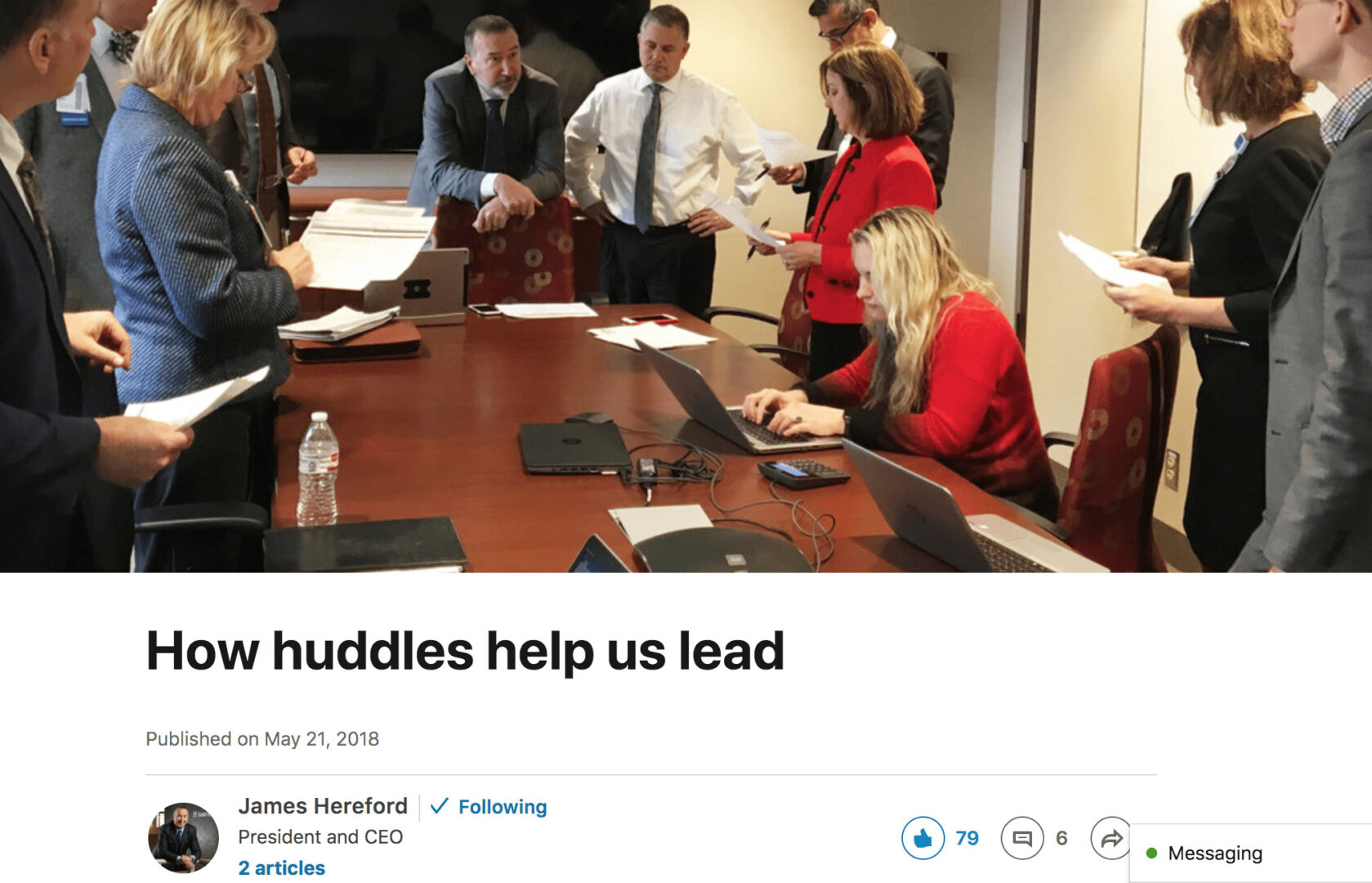Today is one of those days where I think, “Forget what I have to say, read this….”
This being a LinkedIn post written by James Hereford, the CEO of Fairview Health Services in Minnesota.
“How huddles help us lead“
I think the “us” says a lot, instead of a headline about “How huddles help ME lead.”

He says, in part:
“Making health care work better for everyone doesn't happen by accident. One way we're working to improve is by establishing systems that help us be our best every day and unleash the power of our 32,000 employees to solve problems. The tiered huddle is one of those systems.”
Practicing Lean, as James says, isn't just about having these huddles – it includes working to engage everybody in “Kaizen” or daily continuous improvement.
While James writes about the need that's there, sometimes, to escalate issues, not everything needs to be escalated. Lean management is about finding a balance between empowering and delegating where you can and escalating where you must.
Ah, I'm not following through on my opening sentence… I am telling you what I think :-)
I admire the way James leads by example. I've, sadly, seen too many organizations where the CEO wants to delegate Lean without participating. It doesn't work that way. The CEO can't just endorse or support Lean, they have to lead by example. The culture (or culture change) usually starts with them.
I wish we had more CEOs like James in healthcare.
Previous Mentions of James Hereford:
I've written about James before, when he took the CEO job at Fairview:
James was also part of a group that joined me for a podcast back in 2007, talking about Lean at Group Health Cooperative in Seattle:
And I quoted James in this 2009 blog post:
“Traditional health care often relies on heroic individuals to somehow make a fragmented nonsystem work — instead of having a thoughtfully designed system that makes it easy for doctors, nurses, and other clinicians to provide care.
Clinicians shouldn't have to be heroic. The system should remove inefficiencies and unwarranted variation. Allowing highly trained people to work with less waste in more supportive environments will improve quality and reduce costs. That's our long-term commitment and strategy using Lean principles.
Over the next five years, we'll make significant gains in efficiency and quality that will really drive a better price point in the marketplace.”
It reminds me of the theme from the book by Kim Barnas called Beyond Heroes.
Is your organizations utilizing daily huddles or “tiered huddles” like this? Are you getting the direct involvement, engagement, and participation of your CEO?
What do you think? Please scroll down (or click) to post a comment. Or please share the post with your thoughts on LinkedIn – and follow me or connect with me there.
Did you like this post? Make sure you don't miss a post or podcast — Subscribe to get notified about posts via email daily or weekly.
Check out my latest book, The Mistakes That Make Us: Cultivating a Culture of Learning and Innovation:










Join the discussion on LinkedIn:
Brent Barkett, MBA, LSSBB
Business Manager, Value Transformation @ Partners For Kids (Pediatric ACO) at Nationwide Children’s Hospital
I had the pleasure of being in the crowd as James spoke to our black belt group and walking with him over several days through our largest logistics facility. His thoughts and words made me quit corporate and jump to working for a hospital system. He really gets it.